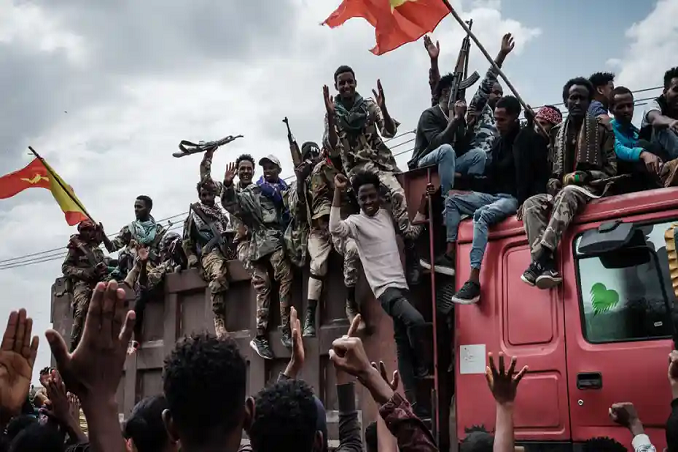On Thursday, Ethiopia’s Abiy Ahmed led government made a surprise announcement of what it called “an indefinite humanitarian truce” in the Tigray region scarred by war. The government said the move was necessary to allow the free supply of relief aid to the region. Consenting with the move by Ahmed’s government, Tigray rebels have agreed to “cessation of hostilities” marking a crucial turning point to war in Tigray region in Northern Ethiopia that has been continuing for nearly 17 months.
“The government calls upon the donor community to redouble their generous contributions to alleviate the situation and reiterates its commitment to work in collaboration with relevant organizations to expedite the provision of humanitarian assistance to those in need,” authorities said in a statement issued by the Government Communication Service.
The Tigray rebels said in a statement that they were “committed to implementing a cessation of hostilities effective immediately”. Furthermore, they urged the authorities to accelerate delivery of emergency aid into Tigray, where scores of people are facing starvation.
The Ethiopian government called on TPLF (Tigray People’s Liberation Front) in the truce announcement on Thursday, to “desist from all acts of further aggression and withdraw from areas they have occupied in neighbouring regions”. In response, the rebels urged “Ethiopian authorities to go beyond empty promises and take concrete steps to facilitate unfettered humanitarian access to Tigray”.
The conflict between Ethiopian government led by Prime Minister Abiy Ahmed and Tigray region’s TPLF erupted in November 2020 after Ahmed sent in federal troops to region to topple TPLF that controls the region. The move by Prime Minister was in response to the rebel attacks carried on army camps.
Related Posts
The regional conflict quickly accelerated into a full blown war triggering a humanitarian catastrophe. War crimes like massacres, mass rapes and at a point racially influenced killings from both the warring sides led to a humanitarian crisis. Over 400,000 people were estimated to be displaced. Abiy Ahmed’s government was accused of preventing international aid from reaching the region, triggering global uproar. In January, United Nations raised the alarm that more than 40 per cent of Tigray’s population is facing “an extreme lack of food”.
The declaration of humanitarian truce has been welcomed by European Union, African Union, US and UN. “These positive developments must now translate into immediate improvements on the ground,” said the spokesperson for UN secretary-general chief António Guterres. The United States Secretary of State, Antony Blinken, said Washington “urges all parties to build on this announcement to advance a negotiated and sustainable ceasefire, including necessary security arrangements”.
International aid agencies and workers too have lauded the decision, which they had been urging for since a long time. Sarah Jackson, Amnesty International’s deputy director for east Africa said, “All parties to the conflict must immediately allow humanitarian aid workers uninterrupted access to all conflict-affected areas of northern Ethiopia, including Afar and Amhara.”

